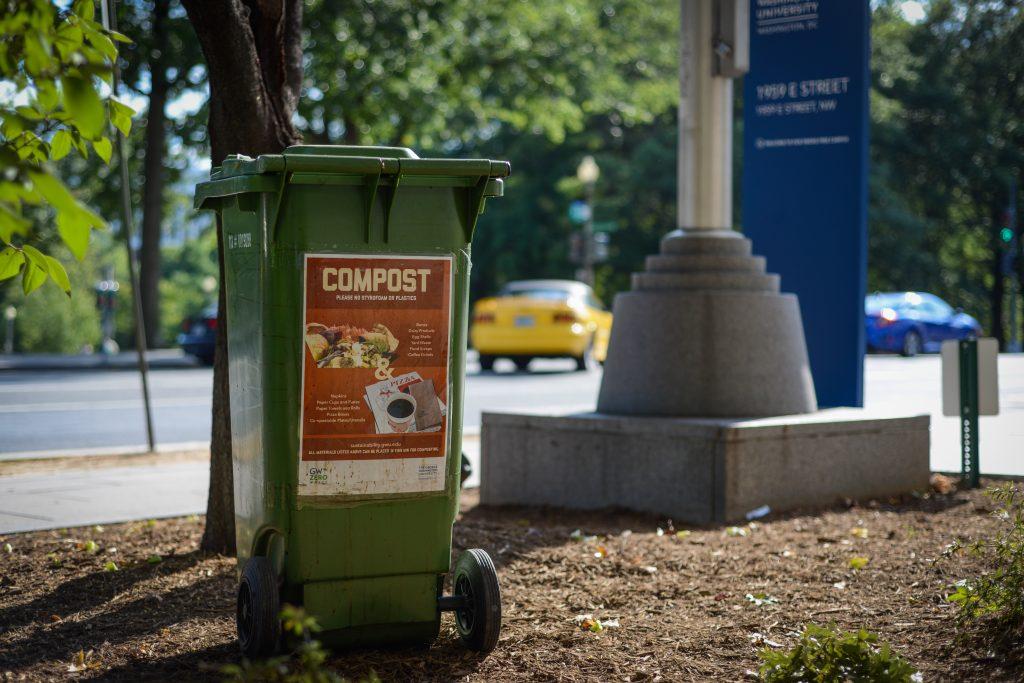A biology professor wants to lead her department to reduce their carbon footprint through composting.
Tara Scully, a teaching assistant professor of biology, will launch a pilot composting program in the biology department in the coming weeks. The program will last until the end of the semester before it is added to other departments, and it is designed to help participants learn more about composting.
Throughout the semester, faculty and students in the biology department in Bell Hall and the Science and Engineering Hall will deposit biodegradable food items in bins provided by Scully and a team of students, Scully said.
Scully said she will gather a team of students to report on the maximum amount of compost an office generates, what type of composting containers work best, how often pick-ups should be, what kind of communication is needed about the project and composting locations.
Scully hopes to use the data sheets to convince other departments to start composting, she said. She said she expects both students and faculty members to be “highly motivated” by the project.
“We can’t just go out there and randomly ask a bunch of offices to start composting. We should probably come up with a pilot program,” Scully said. “Since I work in the biology department, I figure I can twist the arms of a few of my colleagues, which probably don’t need twisting at all.”
She added that she hopes to draw attention to the project through social media and faculty meetings.
The student-run GroW Garden, which started a composting system in July 2015, is one possible location for the composting project, Scully said. She added that she is also looking into using the greenhouse on the roof of Bell Hall, hoping that once the program is in full swing, the compost could be used to grow seedlings for local gardens.
Scully said it may be difficult to keep the project running throughout winter and summer breaks, when students are not as readily available on campus to assist with composting, but that she hopes they can drum up student volunteers even when school is not in session.
“It would be really nice to be able to take on some undergrads pretty reliably throughout the year and then potentially through the summer, and get a little bit of funding so that we can keep it going,” she said.
GW released a sustainability plan last year that highlighted composting as a way to reduce the University’s waste. In this report, leaders said they would partner with sustainability and event planners to use compostable utensils and include composting opportunities at University events.
Experts say that for university composting programs to be successful, there has to be simplified execution and student and faculty awareness.
Amara Cairns, the president of sustainability group Zero Waste at California Polytechnic State University, said successful composting initiatives are simplistic and include education.
“I think that simplifying the types of potential waste would help make a program successful,” Cairns said. “An ideal system would be to have entirely compostable food containers, cups and cutlery so that someone can compost their leftovers without thinking and only need to recycle plastic bottles or cans that they buy.”
Cairns said to make a composting effort last, the program needs to be part of a campus’s culture.
“A university needs to sustain consistency across campus in order to maintain engagement,” Cairns said. “If it is trying to create a successful compost program, it should make compost collection available everywhere on campus and make the signage simple to read.”
Frank Fritz, the Student Association’s director of sustainability who led a composting program at Hensley Hall in 2015, said he is encouraged by the biology department’s new plan.
“I do hope that other offices will follow suit, and I think they will if the biology department program is successful,” Fritz said in an email.





